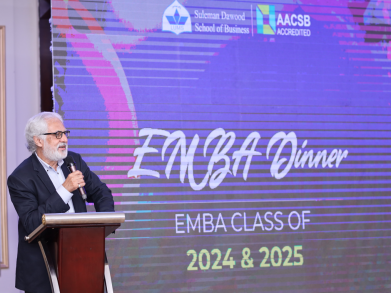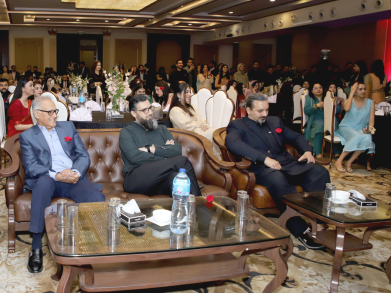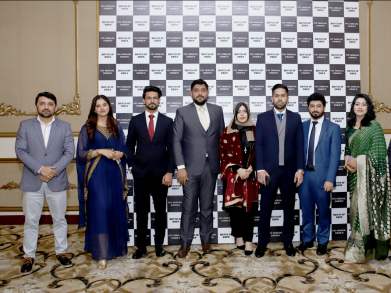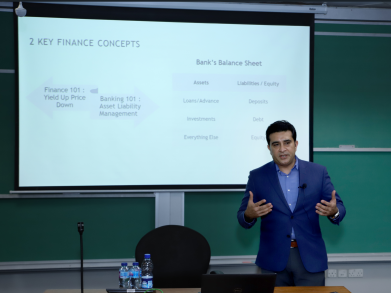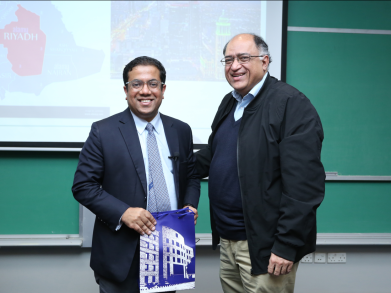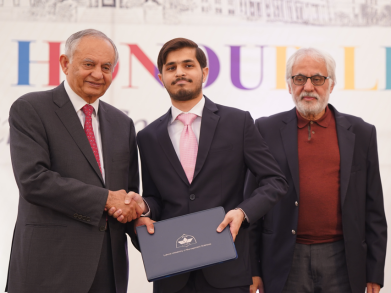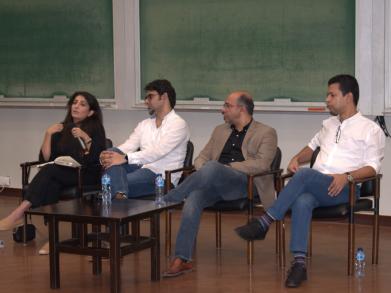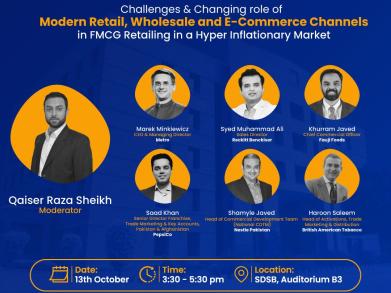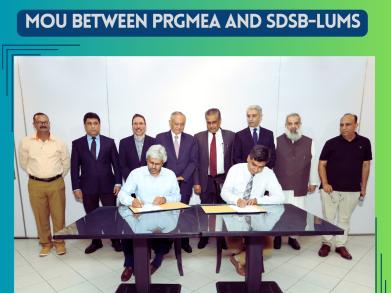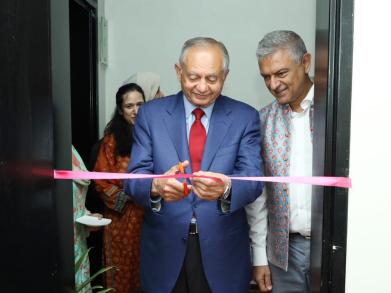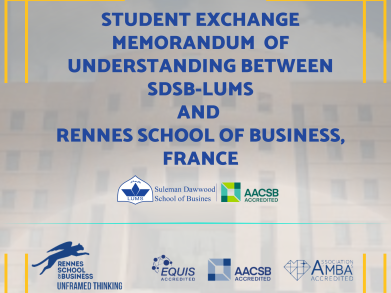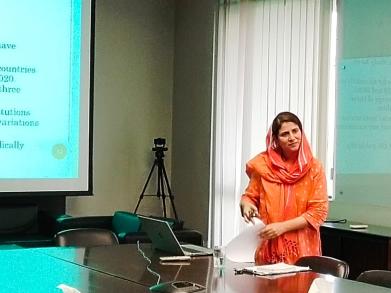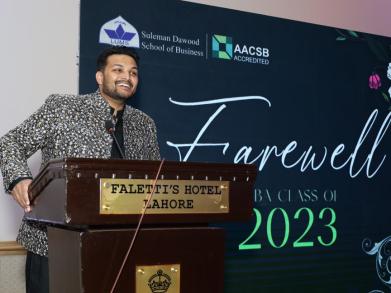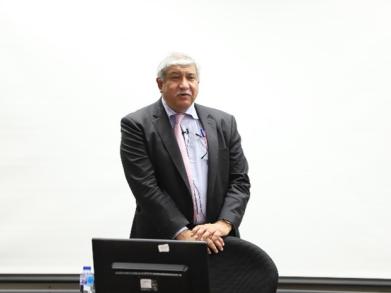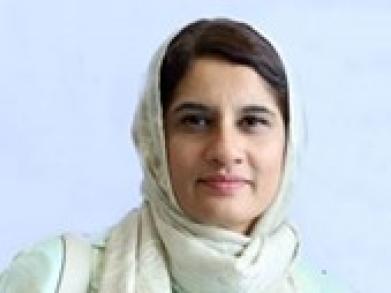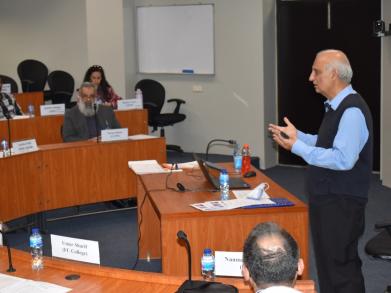Conversations with Changemakers
On Tuesday, September 5, 2023, the "Conversations with Changemakers" series at Suleman Dawood School of Business – LUMS brought together thought leaders in academia for a compelling discussion on "The Future of Business Education in Pakistan." The event featured Dr. Akbar Zaidi, Executive Director of the Institute of Business Administration (IBA) in Karachi, in conversation with Honorary Dean Dr. Alnoor Bhimani.
Dr. Akbar Zaidi is a distinguished political economist, academic, and author with over 80 publications. In his introductory remarks, Dr. Bhimani highlighted Dr. Zaidi's impressive academic background, which includes a bachelor's in economics from the University College London, a master's in social planning of developing countries from the London School of Economics, and a doctorate in history from the University of Cambridge. He emphasised Dr. Zaidi's diverse expertise that extends beyond economics and business.
Dr. Zaidi began by expressing his pleasure at being at LUMS and praised the institution for its exceptional faculty and alums, some of whom he has hired at IBA. He also spoke about his unexpected journey into academia, which spanned over four decades, and how it led him to his current role as the Executive Director of IBA Karachi.
He stated, "My journey into academia has spanned over four decades, and it's a path I didn't necessarily plan for. My background isn't rooted in business, history, or political economy, yet I've spent a significant portion of my career in a business school."
Dr. Zaidi highlighted the evolving role of universities in preparing students for the modern world, emphasising the need for adaptability in the face of rapid technological advancements. "The traditional hierarchical teaching model may not be sufficient anymore," he asserted. "We must prepare our students for the challenges and opportunities they will encounter in their careers and lives."
Addressing the question of hierarchy and authority within universities, Dr. Zaidi acknowledged the persistence of these structures while advocating for an environment that encourages open discourse and diverse viewpoints.
He stated, "While hierarchy may persist in some aspects of academia, it is essential to foster an environment where students and faculty can openly discuss ideas, challenge prevailing beliefs, and learn from one another's diverse perspectives."
Dr. Zaidi also touched upon the shifting dynamics of student expectations, emphasising their growing awareness of the value of their education. "Students are becoming increasingly aware of the high costs of education and are demanding what they rightfully deserve," he noted.
The discussion shifted to the impact of technology on the workforce, with Dr. Zaidi expressing optimism about the potential of technology to augment human capabilities. However, he stressed the need for educational institutions to stay current and adapt to the changing technological landscape.
Dr. Zaidi lauded the importance of alumni networks and collaborations in fostering community and lifelong learning. He urged universities to embrace their role in shaping positive societal change by promoting innovation, critical thinking, and ethical leadership among their students.
The conversation concluded with Dr. Bhimani expressing his profound appreciation for the enlightening conversation, stating, "I thoroughly enjoyed this illuminating conversation. Throughout our discussion, it became evident that both IBA and SDSB should remain deeply committed to preparing their students to confront the multifaceted challenges posed by the expanding realm of digital technologies, the evolving landscape of global politics, sustainability imperatives, and demographic shifts. It is abundantly clear that the world is undergoing profound transformations both in the business sphere and society at large. In response to these changes, business schools must be pivotal in exposing students to innovative approaches for crafting solutions amid escalating risks and rapid change."
Furthermore, Dr. Bhimani underscored a vital insight from the discussion, emphasising that the leadership of a business school should not be solely focused on managing its ascent in global rankings, driven by detached research production. Instead, he asserted, "The true value of a university must be measured by its capacity to transform lives while fostering the development of informed perspectives on how societies can chart a progressive course forward." This profound perspective encapsulates the essence of the conversation and underscores the critical role of educational institutions in shaping the future.
The session was attended by students, staff, faculty, and alums, along with the LUMS senior management, including LUMS Pro-chancellor, Mr. Abdul Razak Dawood, LUMS Rector, Mr. Shahid Hussain, and LUMS Provost and Acting VC, Dr. Tariq Jadoon. Their presence added immense value to this insightful conversation. Through the Conversations with Changemaker series, we aim to connect students, alums, and the broader community with thought and practice leaders from around the world.




